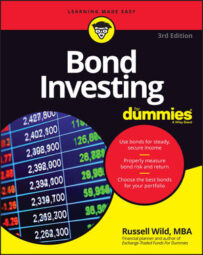They sound like exchange-traded funds (investments similar to mutual funds, usually indexed mutual funds that trade like stocks), but exchange-traded notes (ETNs) are as different from ETFs as jellyfish are from fish. ETNs are debt instruments, bonds of sorts, but the income they produce is far from fixed. In fact, unlike most other debt securities, they offer no coupon rate, and the maturity date, although it exists, is rather inconsequential.
What are exchange-traded notes?
ETNs were first issued in 2006 by Barclays, and Barclays iPath ETNs continue to dominate the market. ETNs trade on the major exchanges, just like ETFs. You can buy as little as one share (under $100), or many shares.
But instead of buying a basket of stocks or bonds as you do when you buy a mutual fund or ETF, the purchase of an ETN represents a direct loan to its purveyor, be it Barclays, PowerShares, Direxion, ProShares, or whoever. If the firm were to go under, you could lose your money, just as you might if you were holding a coupon-paying bond issued by one of these companies.
Instead of promising you a steady rate of interest on your loan, as you’d get with a traditional bond, Barclays, for instance, promises to pay you in accordance with the performance of a particular index.
So, for example, if you were to purchase shares in the (Barclays) iPath Goldman Sachs Crude Oil Total Return Index (the ticker is OIL), your return would be commensurate with any rise (or fall) in the price of crude oil.
If you were to purchase shares in the iPath Dow Jones-AIG Commodity Index Total Return ETN (DJP), your returns would be commensurate with the rise (or fall) in the value of an index that tracks a variety of commodities, from silver and gold to cotton futures and natural gas.
These are but two examples of dozens of ETNs that allow you to track the prices of commodities, stocks, bonds, or currencies. At present, the IRS is taxing ETNs (other than the currency ETNs) very gingerly, asking only for capital gains tax if profits result from a sale of shares.
But the IRS is known to be looking at ETNs with a magnifying glass, and the current favorable tax status may not last forever.
Should you invest in exchange-traded notes?
If you’re going to invest in oil or gas or Indian stocks, or any investment that is difficult to buy directly, ETNs may make sense. They are fairly low-cost, tax-efficient (for the moment) securities. They can also be highly volatile investments depending on the type of asset or derivative they are tracking, so be sure you know what you’re getting into.
These are not your father’s debt instruments! Always keep in mind that in addition to the market risk you take on, there is also default risk, just as with any bond. Be certain to investigate the credit worthiness of the issuer!

